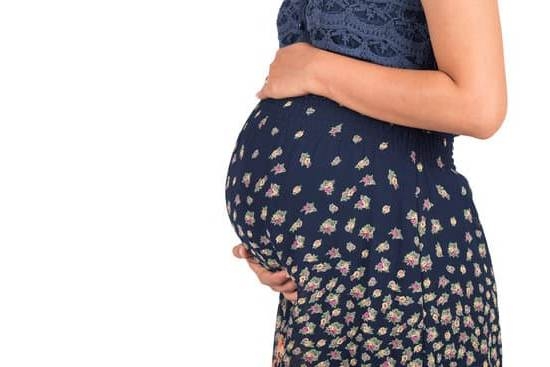How often can precum cause pregnancy? Precum, also known as pre-ejaculate, is a clear fluid that is released from the male reproductive system during sexual arousal.
There has been much debate and confusion surrounding the potential of precum to cause pregnancy. In this article, we will delve into the science behind precum and pregnancy, discuss the factors that affect the likelihood of pregnancy from precum, explore statistics and studies on this topic, address myths and misconceptions, and provide steps to prevent pregnancy from precum.
Understanding what precum is and its potential to cause pregnancy is essential for anyone who is sexually active or planning to engage in sexual activity. Precum is not just a lubricant; it also contains sperm. The presence of sperm in precum is a well-established fact, raising concerns about its ability to lead to pregnancy if it comes into contact with the female reproductive system.
The composition of precum and how it can potentially lead to pregnancy will be detailed in the following sections. It’s crucial to have accurate information about this topic in order to make informed decisions regarding contraception and sexual health.
Additionally, addressing common misconceptions about precum and providing accurate information will help dispel any misunderstandings or fears related to its potential for causing pregnancy. By presenting real-life stories and experiences, we can shed light on the real risks associated with precum and pregnancy.
The Science Behind Precum and Pregnancy
Precum, also known as pre-ejaculate, is a clear fluid that is released from the penis during sexual arousal. While it does not contain sperm, it may pick up residual sperm left in the urethra from previous ejaculations. This can lead to the potential for pregnancy if the precum comes into contact with the vagina.
The composition of precum is similar to semen, but it does not typically contain sperm. However, there have been studies that show trace amounts of sperm present in some samples of precum. This means that there is a possibility of pregnancy occurring if this fluid comes into contact with the vagina during sexual intercourse.
Factors such as timing, fertility, and birth control methods also play a significant role in determining the likelihood of pregnancy from precum. For example, if a person with a uterus is ovulating at the time of sexual activity and there is contact with precum, the risk of pregnancy increases significantly. Additionally, the use of certain birth control methods such as condoms or hormonal contraceptives can greatly reduce the risk of pregnancy from precum.
| Study | Findings |
|---|---|
| Kinsey Institute Study (2009) | Found that around 37 out of 100 women would become pregnant after a year of having sex without using any contraception or protection. |
| National Center for Health Statistics Study (2016) | Reported that about 21% of sexually active women aged 15-44 used withdrawal (“pulling out”) as their primary method of contraception. |
It is important to understand how various factors can contribute to the risk of pregnancy from precum in order to make informed decisions about sexual health and contraception use.
Factors That Affect the Likelihood of Pregnancy From Precum
Timing
The timing of sexual activity in relation to ovulation is a critical factor in determining the likelihood of pregnancy from precum. Ovulation typically occurs around the middle of a person’s menstrual cycle, and during this time, the chances of becoming pregnant are higher. If sexual activity takes place during this window, there is a greater potential for sperm present in precum to fertilize an egg.
Fertility
Individual fertility levels also play a significant role in the potential for pregnancy from precum. Those with higher fertility levels may be more susceptible to becoming pregnant even with minimal exposure to sperm through precum. Additionally, factors such as age, health, and overall reproductive health can impact fertility and increase the risk of pregnancy from precum.
Birth Control Methods
The use (or lack thereof) of birth control methods also affects the likelihood of pregnancy from precum. When engaging in sexual activity without protection or contraception, including condoms or other forms of birth control, there is a greater risk of pregnancy from precum. Conversely, consistent and proper use of reliable birth control methods reduces the chances of conception even if there is exposure to precum containing sperm.
It’s essential to understand these factors and their impact on the potential for pregnancy from precum in order to make informed decisions about sexual activity and contraception. By considering timing, fertility, and birth control methods, individuals can take proactive measures to minimize the risk of unintended pregnancy resulting from exposure to precum.
Statistics and Studies on Precum and Pregnancy
Studies and research have been conducted to determine the frequency of pregnancy resulting from precum, also known as pre-ejaculate. While precum itself does not contain sperm, there is a possibility of pregnancy if it picks up sperm left in the urethra from a previous ejaculation. Understanding the likelihood of pregnancy from precum can help individuals make informed decisions about their sexual health and contraception options.
Research indicates that the chance of pregnancy from precum is relatively low, but not nonexistent. According to the American Pregnancy Association, some studies have found that precum may contain a small number of sperm, although the concentration is typically much lower than in ejaculated semen.
In one study published in the journal Contraception, researchers observed that approximately 41% of men produced pre-ejaculatory fluid containing live sperm. However, the number of live sperm present was generally low and may not be enough to result in pregnancy under normal circumstances.
Furthermore, timing plays a crucial role in the likelihood of pregnancy from precum. For instance, if sexual activity occurs during or shortly after ovulation, when a woman is most fertile, the chances of pregnancy are heightened regardless of whether ejaculation has occurred.
Factors such as fertility levels in both partners and the use (or non-use) of birth control methods also influence the risk of conception from precum. It’s essential for individuals and couples to consider these factors and make informed choices regarding their sexual activity and contraceptive practices to minimize the risk of unintended pregnancy.
- Despite containing minimal amount of sperm
- Timing plays a crucial role
- Fertility levels and use (or non-use) of birth control methods influence risk
Myths and Misconceptions About Precum and Pregnancy
Precum, also known as pre-ejaculate, is a clear fluid that is released from the penis during sexual arousal. There is a common misconception that precum does not contain sperm and therefore cannot lead to pregnancy. However, this is not entirely true.
While precum may not always contain sperm, there is a possibility that it can pick up residual sperm left in the urethra from a previous ejaculation. This means that if a person engages in sexual activity without using any form of birth control, there is a risk of pregnancy from precum.
The likelihood of pregnancy from precum depends on various factors, including the timing of sexual activity in relation to ovulation, the fertility of both partners, and the use of birth control methods. For example, if sexual intercourse occurs during or near the ovulation period and no form of contraception is used, the chances of pregnancy from precum increase. Additionally, individuals with higher fertility levels may be more susceptible to pregnancy from precum compared to those with lower fertility.
According to research studies, while the risk of pregnancy from precum is lower compared to ejaculate, it still exists. One study published in the journal Human Fertility found that about 17% of women could become pregnant by their partner’s precum alone.
Another study in the journal Contraception reported that 16 out of 27 men (59%) had motile sperm in their pre-ejaculatory fluid. These statistics indicate that there is a non-negligible risk of pregnancy from precum and highlight the importance of being informed about this issue.
| Study | Percentage |
|---|---|
| Human Fertility | 17% |
| Contraception | 59% |
Steps to Prevent Pregnancy From Precum
Understanding the Potential Risks
Before delving into the various methods and strategies for preventing pregnancy from precum, it’s crucial to understand the potential risks associated with this bodily fluid. Precum, also known as pre-ejaculate, is a clear fluid that is released from the male urethra during sexual arousal.
While it does not contain sperm itself, precum can pick up leftover sperm in the urethra from previous ejaculations, which can lead to pregnancy if it comes into contact with the vagina. Understanding this mechanism is essential in taking proactive steps to reduce the risk of unintended pregnancy.
Consistent and Proper Use of Condoms
Using condoms consistently and correctly is one of the most effective methods for preventing pregnancy from precum. Latex or polyurethane condoms act as a barrier that prevents precum – as well as ejaculate – from entering the vagina.
When using condoms, it’s important to ensure they are put on before any genital contact and that they are used throughout the entire duration of intercourse. Additionally, checking the expiration date and ensuring proper storage of condoms can help maximize their effectiveness in preventing pregnancy.
Utilizing Other Forms of Birth Control
In addition to using condoms, individuals may consider utilizing other forms of birth control such as oral contraceptives, intrauterine devices (IUDs), or contraceptive implants to further reduce the risk of pregnancy from precum. These methods work by either preventing ovulation, thickening cervical mucus to block sperm, or creating a barrier within the uterus.
Consulting with a healthcare provider can help individuals determine which method may be most suitable for their reproductive health needs and goals. It’s important to note that while these methods are highly effective at preventing pregnancy when used correctly, there is still a small chance of failure.
By understanding these preventative measures and implementing them consistently and correctly, individuals can take proactive steps to reduce the risk of pregnancy from precum and make informed decisions about their sexual health.
Real-Life Stories and Experiences
While the topic of precum and pregnancy is often discussed in a clinical or scientific context, it’s essential to recognize that individuals may have personal experiences with this issue. Hearing real-life stories can provide valuable insight into the potential risk of pregnancy from precum and how it has impacted individuals in their own lives.
Here are some personal anecdotes and experiences related to precum and pregnancy:
- Alice: “I never thought that precum could lead to pregnancy until it happened to me. My partner and I were not using any form of birth control, assuming that precum wouldn’t pose a significant risk. However, I soon found out that I was pregnant, which came as a surprise to both of us.”
- David: “My partner and I relied on the withdrawal method, thinking that it would be effective in preventing pregnancy. We didn’t realize that precum could still contain sperm and lead to conception. As a result, we were shocked when my partner became pregnant, despite our efforts to avoid it.”
- Sarah: “After reading about the potential risk of pregnancy from precum, my partner and I decided to be more cautious. We now use condoms consistently to reduce the likelihood of unintended pregnancy. It was eye-opening for us to learn about the potential consequences of relying on withdrawal or assuming that precum doesn’t carry any risk.”
These personal stories highlight the varied experiences individuals have had with precum and the potential for pregnancy. They underscore the importance of understanding how often precum can cause pregnancy and taking proactive steps to minimize this risk. By sharing these experiences, individuals can gain valuable insights into the real-world implications of this issue.
Conclusion
In conclusion, the discussion on how often precum can cause pregnancy highlights the complexities and uncertainties surrounding this topic. While precum does contain sperm and can potentially lead to pregnancy, the likelihood varies depending on a range of factors. The composition of precum, timing of intercourse, fertility levels, and use of birth control methods all play a role in determining the risk of pregnancy from precum.
It is important for individuals to be well-informed about the potential risks associated with precum in relation to pregnancy. Understanding these risks can empower people to make informed decisions about their sexual health and contraceptive practices. By debunking myths and misconceptions about precum and pregnancy, individuals can take proactive steps to reduce the likelihood of an unintended pregnancy.
Ultimately, education, open communication with partners, and access to reliable contraception are crucial in minimizing the risk of pregnancy from precum. It is essential for individuals to seek guidance from healthcare professionals and make use of available resources to ensure they are equipped with accurate information and tools for preventing unwanted pregnancies.
Overall, being aware of the potential impact of precum on fertility allows individuals to take control over their reproductive health and make choices that align with their desired family planning goals.
Frequently Asked Questions
How Likely Are You to Get Pregnant From Precum?
The likelihood of getting pregnant from precum is relatively low, but not impossible. It is important to remember that precum can still contain sperm, so the risk of pregnancy is present.
How Likely Is It to Get Pregnant With Pulling Out?
Although pulling out before ejaculation can lower the chances of pregnancy, it is still possible to get pregnant with this method. This is due to the fact that some sperm may be released before ejaculation.
Does Precum Happen All the Time?
Precum does not happen all the time, but it can occur during sexual arousal or stimulation. It is a clear fluid that comes from the Cowper’s glands and serves as a lubricant for intercourse.

Welcome to my fertility blog. This is a space where I will be sharing my experiences as I navigate through the world of fertility treatments, as well as provide information and resources about fertility and pregnancy.





